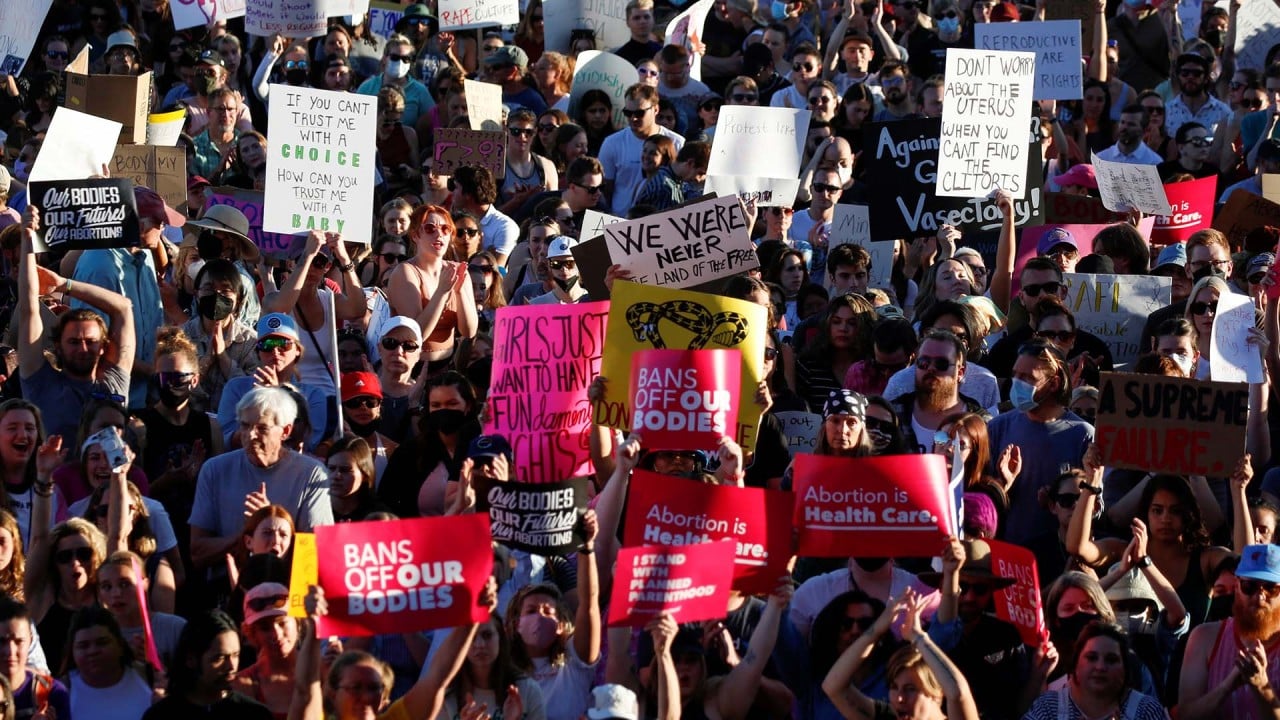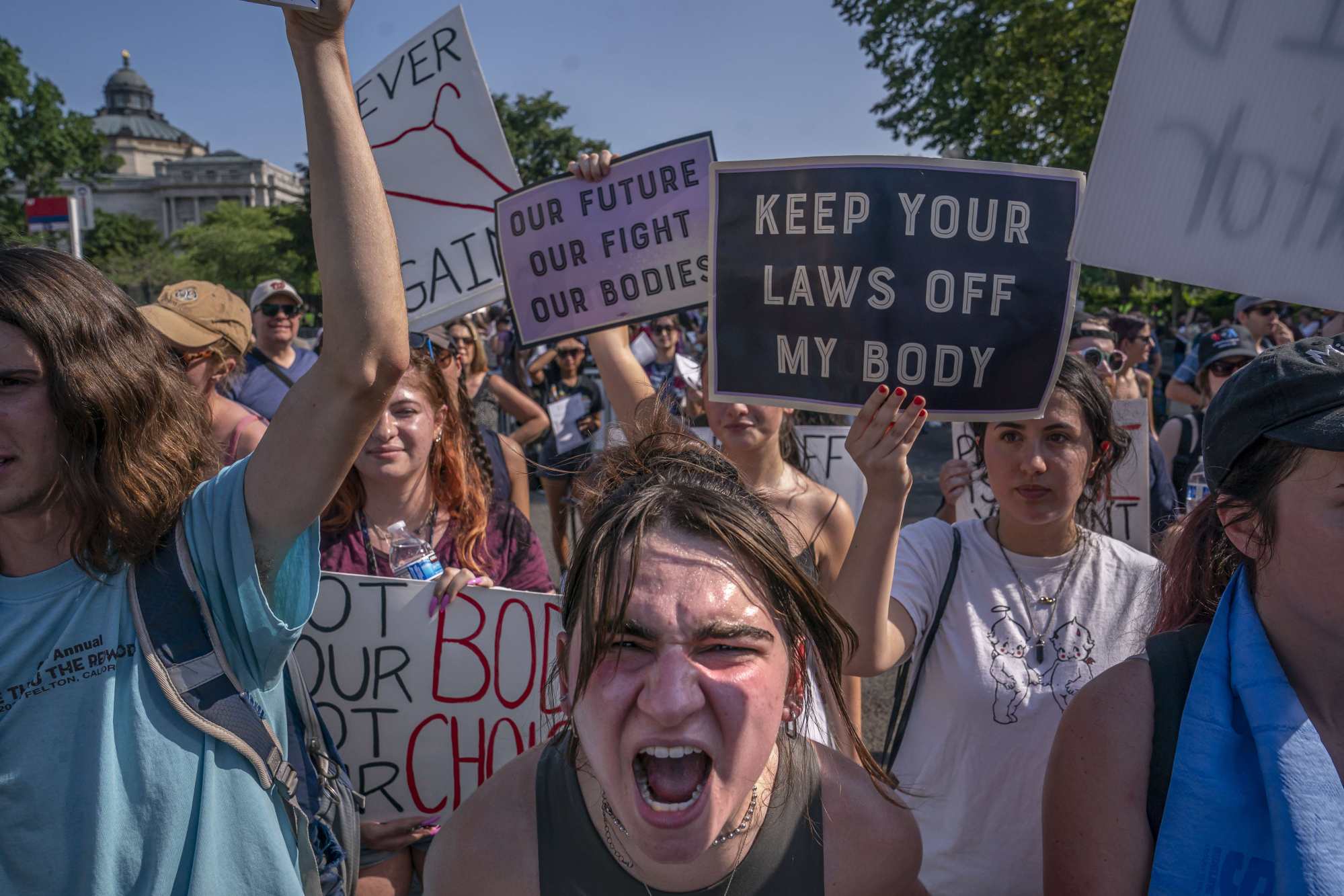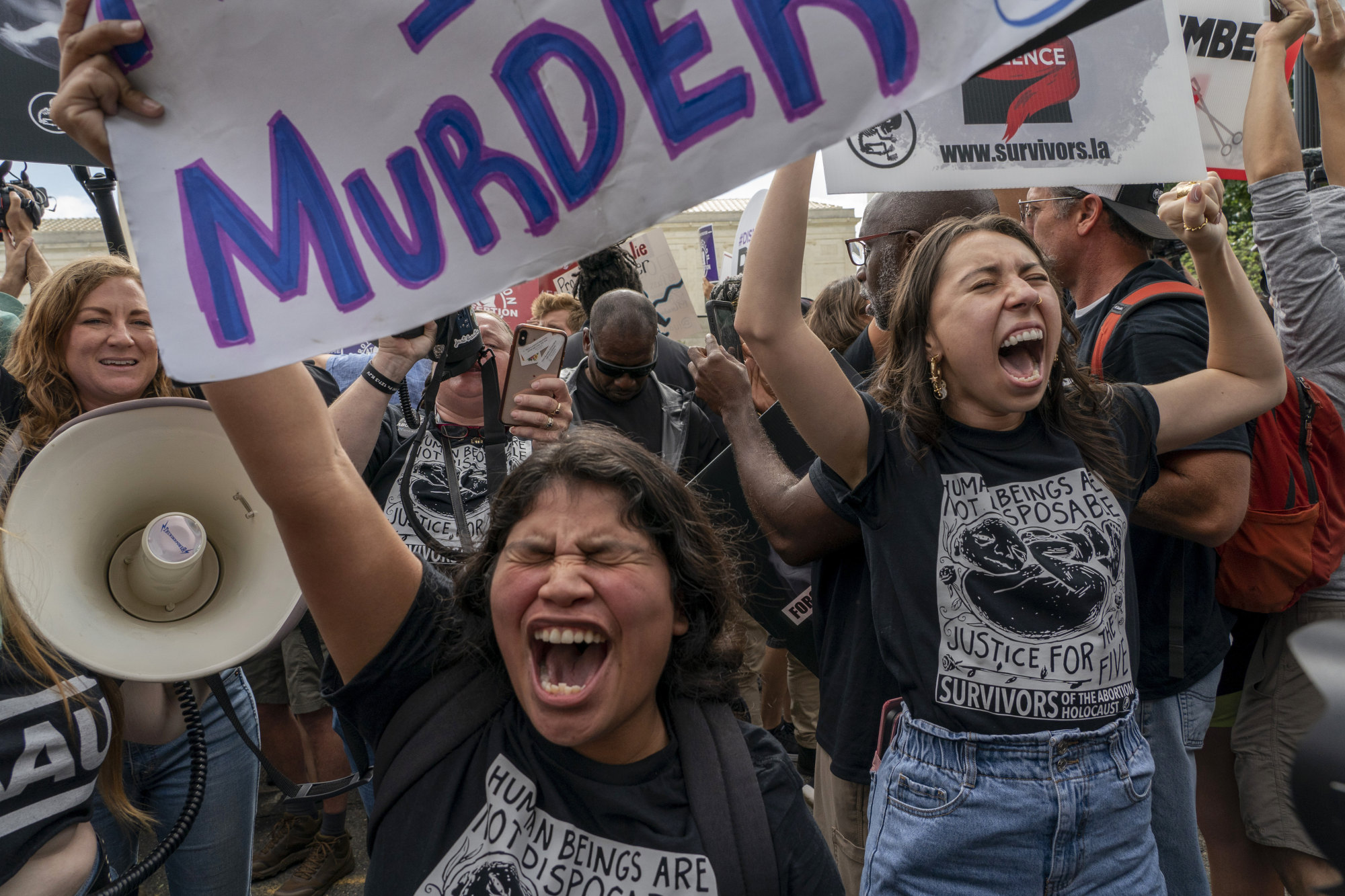
04:38
Protests across US after Supreme Court's decision to overturn abortion rights
Roe vs Wade: America’s rival camps dig in for fight after abortion ruling
- America divided after the US Supreme Court overturned a woman’s constitutional right to an abortion
- States start implementing bans, and supporters and foes of abortion rights mapped out next moves
Elected leaders across the US political divide rallied for a long fight ahead on abortion – state by state and in Congress – with total bans in force or expected soon in half of the vast country.
Dozens of arrests and some instances of vandalism were reported during a weekend of mostly peaceful protests that turned disorderly in places – as the country grapples with a new level of division: between states where abortion is or will soon be illegal, and those that still allow it.
Conservative-led US state legislatures have moved swiftly, with at least eight imposing immediate bans on abortion – many with exceptions only if a woman’s life is in danger – and a similar number to follow suit within weeks.
In a first glimpse of the legal battles ahead, the nation’s largest abortion provider Planned Parenthood filed suit in Utah seeking to block the state’s ban.
And Democratic governors in Michigan and Wisconsin have stepped in to try to keep abortion legal in their Midwestern states.
Fears grow online data could be weaponised against abortion seekers in US
Defending the ban now in effect in South Dakota, which makes no exception for victims of rape or incest, Republican Governor Kristi Noem called the Supreme Court’s ruling “wonderful news in the defence of life”.
Speaking on ABC’s This Week, Noem also voiced support for legislation banning “telemedicine abortions” in which a doctor prescribes pills to end a pregnancy – set to become a key resource in many places where abortion is illegal.
Governor Asa Hutchinson of Arkansas likewise argued that “forcing someone to carry a child to term” in order to save an unborn baby was an “appropriate” use of government power.
States should now focus on helping mothers and newborns by expanding services including adoption, he said on NBC’s Meet the Press.
But the Republican also opposed calls to go further with a federal abortion ban – an ultimate goal of many on the religious right – or restrictions on contraception, which he said is “not going to be touched” in Arkansas.
Fears that the Supreme Court’s strong conservative majority – made possible by Donald Trump – will now seek to target other rights like same-sex marriage and contraception have fuelled the nationwide mobilisation since Friday.

President Joe Biden has condemned the Supreme Court’s ruling as a “tragic error” – but with power now resting with often anti-abortion state legislatures, he has also acknowledged his hands are largely tied.
The president’s main hope is for voters to turn out in defence of abortion rights in November’s midterm elections – and in the meantime, Biden’s Democrats have vowed to defend women’s reproductive rights every way they can.
In Wisconsin, where an 1849 law banning abortion except to save the life of the mother may go into effect, Governor Tony Evers vowed to offer clemency to any doctors who face prosecution, according to local media.
How betting on Trump paid off for anti-abortion supporters
And Michigan’s Governor Gretchen Whitmer promised to “fight like hell”, saying a temporary injunction has been filed to keep abortion legal in her state.
Congresswoman Alexandria Ocasio-Cortez warned nightmare scenarios may soon come true – as women are forced to continue with unwanted pregnancies, travel long distances to states where abortion remains legal, or undergo clandestine abortions.
“Forcing women to carry pregnancies against their will will kill them. It will kill them,” the progressive lawmaker told NBC, urging Biden to explore opening healthcare clinics on federal lands in conservative states in order to help people access abortion services.

A CBS poll released Sunday showed that a solid majority – 59 per cent – of Americans and 67 per cent of women disapproved of the court’s ruling.
While thousands of people rallied peacefully through the weekend – most of them in protest, but many others celebrating – there were isolated incidents of violence. Police fired tear gas on protesters in Arizona and a pickup truck drove through a group of protesters in Iowa.
Judge in US abortion ruling signals gay marriage next in firing line
In the Virginia city of Lynchburg, police were investigating a case of vandalism Saturday at an anti-abortion pregnancy centre – which was spray-painted with graffiti and had its windows smashed.
And in Colorado, police were probing a suspected arson attack Saturday at a similar anti-abortion centre in the town of Longmont, which was painted with graffiti reading: “If abortions aren’t safe, neither are you.”
Additional reporting by Associated Press

.png?itok=arIb17P0)